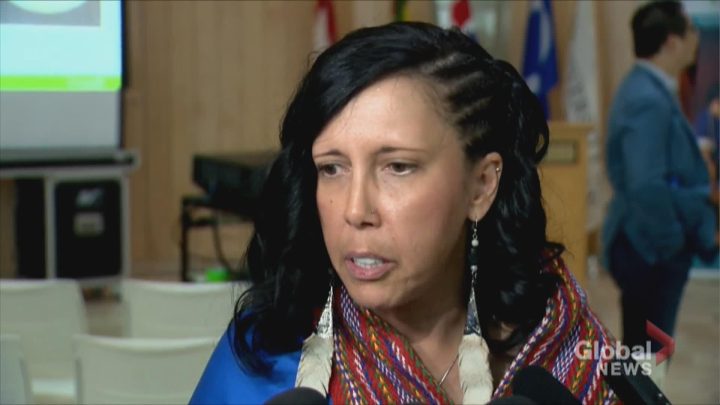A year later, the University of Saskatchewan (USask) released a report called Indigenous Identity Fraud, in light of questions concerning a former health professor and scientific director’s claims of her Métis ancestry.

The questions of Carrie Bourassa’s cultural identity were brought to light last November, when she was unable to provide proof of her claims to have Indigenous ancestry. This brought up further questions of whether Bourassa was able to hold her positions
Bourassa received an achievement award from the Saskatchewan Health Research Foundation (SHRF) for her Indigenous research. She was named one of Canada’s most powerful women of 2021 and even gave a TED Talk about her experience as a Métis person.
The outcome of ousting Bourassa from her former roles revealed a deeper conversation in the academia world of self-identifying as an Indigenous person.
“There’s been concerns within Indigenous communities for quite some time now that there’s people who are fraudulently pretending to be Indigenous in order to access resources and opportunities,” said Lori Campbell, the University of Regina’s (U of R) Indigenous Engagement Association vice-president.

Get daily National news
“We have seen … certainly some of that in all organizations, but certainly a good share of that within universities.”
On Nov. 5, 2021, the U of R released a statement on Indigenous identity following Bourassa’s inability to prove her cultural identity. They stated a commitment to establish an Indigenous advisory body to work with the university leadership on creating a system of Indigenous employment credentials.
- Khamenei’s death met with ‘jubilation’ among Iranian-Canadians: Liberal MP
- Iran begins search for new leader; U.S. military says 3 service members killed
- ‘At first I cried’: How Iranian Canadians are reacting to the U.S. strikes in Iran
- Queen’s University students stranded in Doha after Iran attack shuts down airspace
“Without compromising legislative requirements, we will develop policies and processes for vetting claims to Indigeneity in our recruitment and hiring practices for investigating allegations of Indigenous identity fraud,” according to the statement.
The USask commissioned Jean Teillet, a lawyer and expert on Indigenous rights, to look into recommending policies and practices on verifying Indigenous identity. According to a USask statement, their Board of Governors approved a new policy on Indigenous identity verification in July.
“The result of ground-breaking work by a task force led by Indigenous Elders and leaders,” according to the statement. “Now, Indigenous communities will decide what evidence is required when faculty, staff and students apply for positions or scholarships where they could gain a material advantage.”
The report includes USask policies and procedures and recommendations such as partnerships with Indigenous peoples, ongoing care of USask’s Indigenous members, collective agreement and communications.
For a USask public policy professor, the university did the right thing by calling for the report instead of rushing in and making a decision without careful thought.
“These are going to be defining debates of the 21st century for all Indigenous groups in Canada,” said Ken Coates.
“(USask) commissioned a very accomplished lawyer to look at it and look at the whole issue and see what more can we do. And I think the report itself is actually very reasonable and very balanced.”
The 86-page report can be viewed on the USask website.








Comments
Want to discuss? Please read our Commenting Policy first.